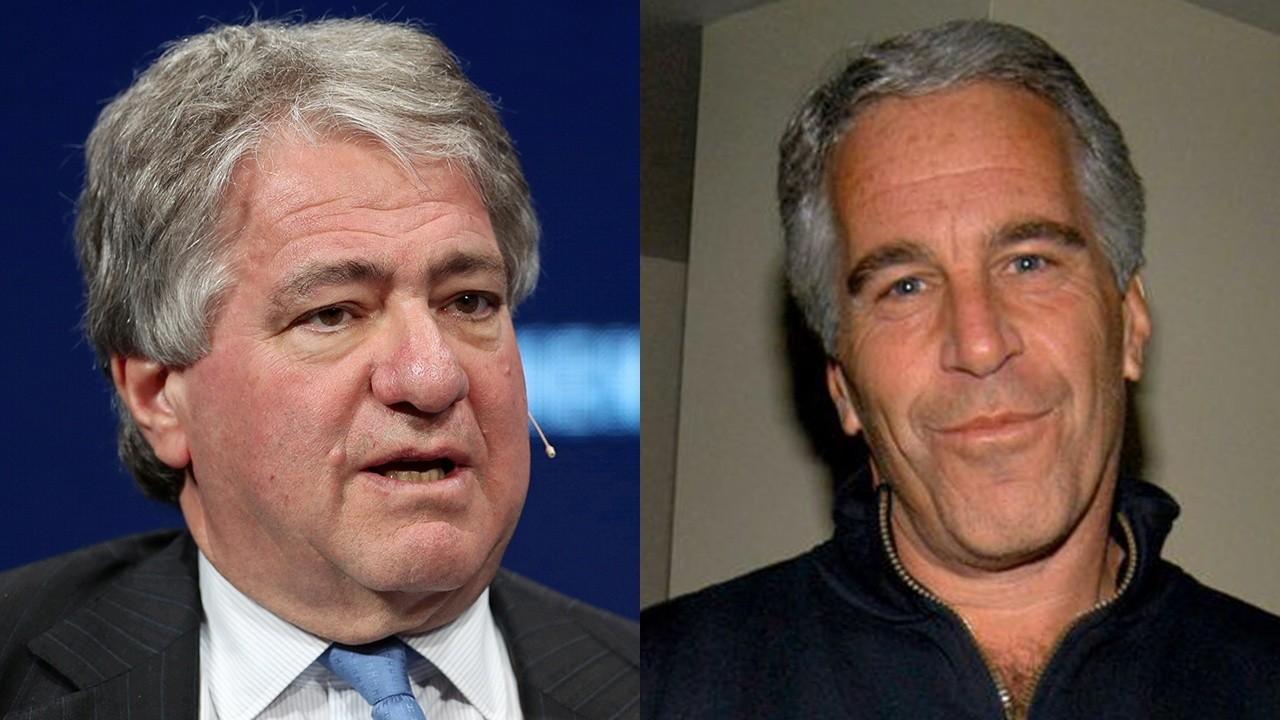Apollo CEO Leon Black to step down following review of Jeffrey Epstein ties
Independent probe finds Black wasn’t involved in disgraced financier’s criminal activities; Marc Rowan to take over top job by July 31
Leon Black plans to step down as chief executive of Apollo Global Management Inc. after an independent review revealed larger-than-expected payments to disgraced financier Jeffrey Epstein that it nevertheless deemed justified.
The monthslong review by Dechert LLP found no evidence that Mr. Black was involved in the criminal activities of the late Epstein, who was indicted in 2019 on federal sex-trafficking charges involving underage girls, according to a copy of the law firm’s report that was viewed by The Wall Street Journal.
In its report, Dechert found the fees that the billionaire had paid Epstein were for legitimate advice on trust- and estate-tax planning that proved to be of significant value to Mr. Black and his family. Mr. Black paid Epstein a total of $148 million, plus a $10 million donation to his charity—far more than was previously known.
BILLIONAIRE LEON BLACK DETAILS JEFFREY EPSTEIN RELATIONSHIP DURING EARNINGS CALL
Mr. Black wrote in a letter to Apollo’s fund investors that he would cede the role of CEO to co-founder Marc Rowan on or before his 70th birthday on July 31 while retaining the role of chairman. In the letter, a copy of which was viewed by the Journal, Mr. Black detailed other governance changes he is recommending to the board, including the appointment of more independent directors and the elimination of Apollo’s dual-class share structure.
Mr. Black also pledged to donate $200 million of his family’s money to women’s initiatives.
The moves conclude a tumultuous period for Mr. Black, who in October asked a committee of Apollo’s independent directors to launch the review of his relationship with Epstein, who killed himself in his Manhattan jail cell in 2019. The request was an effort to assuage concerns among public pension funds and other institutions that invest with Apollo, some of which had said they would pause further investments with the firm after the New York Times reported that Mr. Black had paid Epstein at least $50 million.
Mr. Black “believed, and witnesses generally agreed, that Epstein provided advice that conferred more than $1 billion and as much as $2 billion or more” in tax savings, the report states.
APOLLO CEO LEON BLACK'S JEFFREY EPSTEIN TIES HAS PENSION FUND CLIENT PUSHING BACK
It also supports Mr. Black’s contention that he paid Epstein a fee he believed was roughly equivalent to 5% of the value that late financier generated on an after-tax basis. It describes the two men’s relationship deteriorating beginning in 2016 after a fee dispute. Mr. Black’s last payment to Epstein was made in April 2017.
Mr. Black also asked employees of his family office; attorneys at law firm Paul, Weiss, Rifkind, Wharton & Garrison LLP; and other outside accountants, lawyers and tax professionals to vet and challenge Epstein’s advice when it was given, the report states.
“In short, there is no question that Epstein performed substantive work for Black and that Black genuinely believed that Epstein was extremely smart, capable, and saved him substantial amounts of money,” the report says.
Epstein was arrested in July 2019 after scrutiny of a 2007 nonprosecution agreement he signed with federal authorities in Florida to resolve an investigation into improper conduct involving underage girls. He pleaded guilty in 2008 to two state prostitution counts and spent much of his 13-month sentence outside prison.
Epstein, who grew up in Coney Island, built a fortune of more than half a billion dollars by leveraging close relationships with a who’s who of the nation’s rich and famous, among them retail magnate Leslie Wexner, Johnson & Johnson heiress Elizabeth Johnson and hedge-fund billionaire Glenn Dubin.
After serving his sentence, Mr. Epstein worked to rehabilitate his public image and continued to surround himself with luminaries of politics, academia and finance.
In his letter, Mr. Black added, “It is important to emphasize that both Apollo and I condemn Mr. Epstein’s reprehensible conduct in the strongest possible terms, and, as I have previously stated, I deeply regret having had any involvement with Mr. Epstein.”
In addition to giving up the CEO title, Mr. Black has recommended other governance changes, including adopting a “one share, one vote” structure and eliminating the supervoting shares held by the firm’s founders. He has also proposed augmenting the board so that the majority of directors are independent.
“I am keenly aware that Apollo must continue to innovate and improve its corporate governance processes and focus on creating an enduring world-class financial institution with a best-in-class governance structure,” Mr. Black wrote in the letter.
Apollo’s board voted to add two new independent directors: Pamela Joyner, founder of marketing firm Avid Partners LLC, and Siddhartha Mukherjee, a scientist, oncologist and Pulitzer Prize-winning author, in addition to Apollo Co-Presidents Scott Kleinman and Jim Zelter. Mr. Black told investors that the board plans to add at least two more independent directors.
Apollo abandoned its partnership structure and became a corporation in September 2019, as a number of its rivals have done. Removing the dual-class share structure would take it a step further, possibly allowing the company to be included in the S&P 500.
CLICK HERE TO GET THE FOX BUSINESS APP
Mr. Black would be one of just a few founders of big, publicly traded private-equity firms to pass the CEO torch. The founders of Ares Management Inc. and Carlyle Group Inc. have already done so, but Blackstone Group Inc.’s Stephen Schwarzman and KKR & Co.’s Henry Kravis and George Roberts, all in their 70s, remain in their CEO roles, though they have put clear succession plans in place.
In elevating Mr. Rowan, the architect of the insurance platform that powers Apollo’s $300 billion credit business, the firm is underscoring the degree to which its focus has moved away from the distressed-debt and private-equity deals that made it famous and toward generating yield for institutions like insurance companies.
CLICK HERE TO READ MORE ON FOX BUSINESS
The ascension of Mr. Rowan, 58 years old, was in some ways unexpected. Apollo said in July that he would take a step back from his day-to-day responsibilities and embark on a “semisabatical.” To some insiders, that seemed to pave the way for co-founder Josh Harris—who has for years overseen the firm’s day-to-day operations and has spent the past few years trying to institutionalize and revamp what some had described as a cutthroat culture—to take the top executive spot.
Mr. Harris will remain a member of Apollo’s board and executive committee and will “continue to focus on expanding our global search for investor returns,” Mr. Black told investors.





















